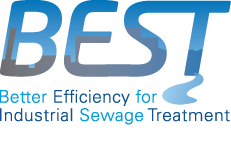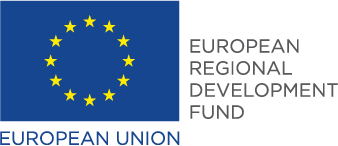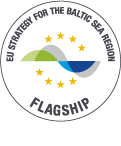Local cooperation models
Project BEST aims to better cooperation and communication between local stakeholders like water utilities, industrial companies, permitting authorities and decision makers who are involved in co-treatment of industrial and municipal wastewaters.
Produced documents
Developing local management models for improved treatment of industrial effluents
Industrial wastewater management model in Adaži wastewater treatment plant, Latvia
The characteristics of industrial waste water conveyance and treatment systems in the operation area of Miejskie Przedsiębiorstwo Wodociągów I Kanalizacji m.st. Warszawy S.A.
Summary
Why
Good cooperation ensures timely exchange of information and quick response to malfunction situations. The goal of the work in the project was to demonstrate and test in practice how cooperation and regular communication results in better process control and co-treatment of industrial effluents and reduces loading of nutrients and hazardous substances to Baltic Sea.
How
Good cooperation practices were collected from the partner countries in BEST national and international events. In Latvia, Riga Technical University created an industrial wastewater management model for a local municipality and in Poland, a study ordered by the City of Warsaw evaluates the industrial wastewater conveyance and treatment system operated by the municipal water and sewage management company in Warsaw. Furthermore, the Project BEST Investing Partners together with the municipal wastewater treatment plants they were connected to acted as test units for creating and testing the cooperation models. The Investing Partners arranged local planning meetings, mutual learning and information exchange sessions and on-site visits. The created cooperation methods were evaluated by participant organizations and, based on the feedback and output, jointly developed further during the project. The project’s international capacity development events were used as a platform to plan, report, evaluate and develop these local practices.
Main outputs shortly
In Adaži municipality, Latvia cooperation models were created between the local wastewater treatment plant and its industrial customers representing mainly food industry. The aim of this work was to determine the main factors (technological and chemical) that can affect the operation of municipal wastewater treatment plant, and to evaluate the list of the recommendations for both sides (industry and municipality) to improve industrial wastewater management and cooperation. As a result, a communication model and WWTP process management scheme including the risk assessment procedure were created. The recommendations suggest regular communication between operators at factories and municipal WWTP, fair transfer of information about technological processing or failures, attracting professional operators for work and regular training for employees.
In Poland, an analysis of industries conveying wastewater to MPWiK WWTPs was carried out by combining various data sources. The on-site inspections and wastewater sampling by MPWiK were considered to work well as a preventive measure: despite the constant number of inspections in recent years, the cumulative amount of contractual penalties charged has decreased significantly. However, some doubts were raised by the actual stream of industrial liquid waste transported to septage receiving stations with vacuum trucks. MPWiK was advised to provide more information on the procedure of connecting industrial wastewater suppliers and make industrial wastewater suppliers more aware of their duties associated with discharging this type of wastewater to the MPWiK sewage system. In addition, MPWiK and industrial wastewater suppliers were encouraged to
– exchange experiences on pre-treatment in order to improve the quality of the discharged wastewater
– consider the gradual automation of industrial wastewater quality control directly at suppliers’ premises
– establish ongoing cooperation with bodies having in place separate tools for supervising industrial wastewater suppliers, in particular WIOŚ and Wody Polskie. Such cooperation can contribute to determining the potential group of entities violating environmental requirements related to industrial wastewater discharge. Furthermore, it is also recommended to establish closer cooperation with the Waste Management Department for a better identification of septic tanks in which industrial liquid waste is collected.
A summary of work carried out by BEST investing partners suggests that they were interested in improving their knowledge of the origin and quality of industrial wastewaters. Moreover, they considered increasing cooperation between water utilities and industrial companies as beneficial and offering opportunities for risk prevention and joint planning of technical improvements. Their feedback was incorporated into the Guidelines for management of industrial wastewaters and its national annexes, as well as into Toolbox for best practices.
Responsible partner
John Nurminen Foundation



